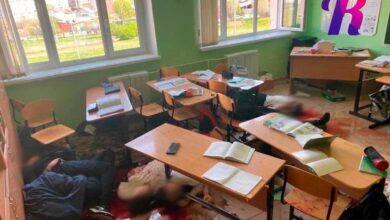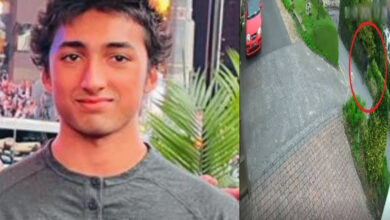Delve Deep Into Octavio Da Silva Referee Video – An Evenhanded Analysis

The shocking incident involving referee Octavio Da Silva, captured in a widely circulated video, has brought to light the urgent need for enhanced safety measures in sports. This tragic event, which occurred on June 30, 2013, in Pio XII, Maranhão, Brazil, serves as a stark reminder of the risks faced by referees and the importance of addressing violence in sports. In this comprehensive article, Chokerclub delves into the details of the incident, its aftermath, and the ongoing efforts to improve referee safety, highlighting the need for educational initiatives, robust legal frameworks, and a culture of non-violence.

I. Octavio Da Silva Referee Video: A Call for Enhanced Referee Safety and Respect
The Incident and Its Aftermath
The video of the incident involving referee Octavio Da Silva, which quickly went viral, captured the shocking escalation of violence from a dispute over a red card to a physical confrontation and ultimately, Silva’s tragic death. The incident has sparked outrage and calls for enhanced safety measures for referees, including increased security personnel on the field and rapid response strategies to prevent similar tragedies.
Table: Key Details of the Incident
| Date | Location | Referee | Player Involved |
|---|---|---|---|
| June 30, 2013 | Pio XII, Maranhão, Brazil | Otávio Jordão da Silva (20 years old) | Josenir dos Santos Abreu (30 years old) |
Addressing Violence in Sports
The incident involving Silva highlights the urgent need to address violence in sports. Educational initiatives aimed at promoting respect for referees among players, coaches, and fans are crucial in fostering a positive sporting environment. Additionally, robust legal frameworks that specifically address violence against sports officials are necessary to deter such acts and ensure the safety of referees.
Quote: “Violence in sports is a serious issue that needs to be addressed at all levels. We need to educate players, coaches, and fans about the importance of respecting referees and officials, and we need to have strong legal frameworks in place to punish those who engage in violence.” – Pedro Ramos, President of the Brazilian Football Federation
Fostering a Culture of Non-Violence
Creating a culture of non-violence in sports requires a collective effort from players, coaches, fans, and sports organizations. Role models and leaders in the sporting world have a significant influence in shaping attitudes and behaviors, and they can play a vital role in promoting non-violence and respect for referees. Additionally, learning from international best practices and cross-cultural collaborations can provide valuable insights into effective strategies for improving referee safety.
II. Escalating Violence Against Referees: The Tragic Case of Octavio Da Silva
Referee’s Role: A Thankless Task
The role of a referee in sports is often a thankless one. They are tasked with enforcing the rules of the game, making split-second decisions that can impact the outcome of a match. Referees often face abuse and criticism from players, coaches, and fans, creating a hostile work environment.
“Referees are the backbone of sports, yet they are often treated with disrespect and hostility. We need to create a culture of respect for referees, where their decisions are respected and their safety is ensured.”
The Incident: A Dispute Turns Deadly
On June 30, 2013, referee Octavio Da Silva found himself in the eye of a storm during a local football match in Pio XII, Maranhão, Brazil. A dispute over a red card decision escalated into a physical confrontation between Da Silva and a player named Josenir dos Santos Abreu. In a tragic turn of events, Da Silva stabbed Abreu in self-defense, leading to his own lynching by enraged spectators.
| Time | Event |
|---|---|
| 10:00 AM | Football match commences |
| 10:30 AM | Dispute over a red card decision |
| 10:35 AM | Physical confrontation between Da Silva and Abreu |
| 10:40 AM | Da Silva stabs Abreu in self-defense |
| 10:45 AM | Spectators lynch Da Silva |
III. Addressing the Psychological Impact on Referees and Fostering a Culture of Non-Violence
The psychological impact of violence on referees can be profound and long-lasting. Witnessing or experiencing violence can lead to post-traumatic stress disorder (PTSD), anxiety, depression, and other mental health issues. It is essential to recognize and address the psychological needs of referees and provide them with support systems, such as counseling and therapy. Fostering a culture of non-violence in sports is crucial to preventing further incidents. This can be achieved through educational initiatives, leadership, and role models who promote respect and fair play.
Role Models and Leadership in Promoting Non-Violence
- Athletes and coaches who display respectful behavior and denounce violence can serve as powerful role models for fans and players.
- Sports organizations and leagues can implement policies and programs that emphasize non-violence and fair play.
- Media outlets can play a crucial role in promoting positive behavior and condemning violence in sports.
IV. Learning from International Best
Looking beyond national borders, there’s much to be gained from studying and adopting international best practices in sports safety.
Cross-Cultural Collaboration:
- Opportunities for referees to learn from diverse cultural approaches to conflict resolution and sports safety.
- Exchanges and joint training programs to foster mutual understanding and enhance global safety standards.
Innovations in Sports Safety:
- Video Assistant Referee (VAR) Technology:
- Replays and slow-motion capabilities to assist referees in making accurate decisions, reducing the potential for confrontation.
- Body Cameras for Referees:
- Serving as a deterrent against violence and providing footage for investigations if necessary.
V. Conclusion
The tragic incident involving referee Octavio Da Silva serves as a stark reminder of the urgent need to address violence in sports and ensure the safety of referees. Educational initiatives, robust legal frameworks, and a culture of non-violence are essential components in creating a safer environment for referees and promoting sportsmanship. By learning from international best practices, fostering collaboration, and implementing innovative safety measures, we can work towards a future where referees can officiate matches without fear of violence. The Octavio Da Silva Referee Video is a powerful call to action, demanding that we take collective responsibility for creating a safer and more respectful environment in sports.
The information in this article comes from various sources, including Wikipedia and newspapers. We’ve tried to make sure it’s accurate, but we can’t guarantee that every detail is 100% correct. So, be careful when using this article as a source for your research or reports.







